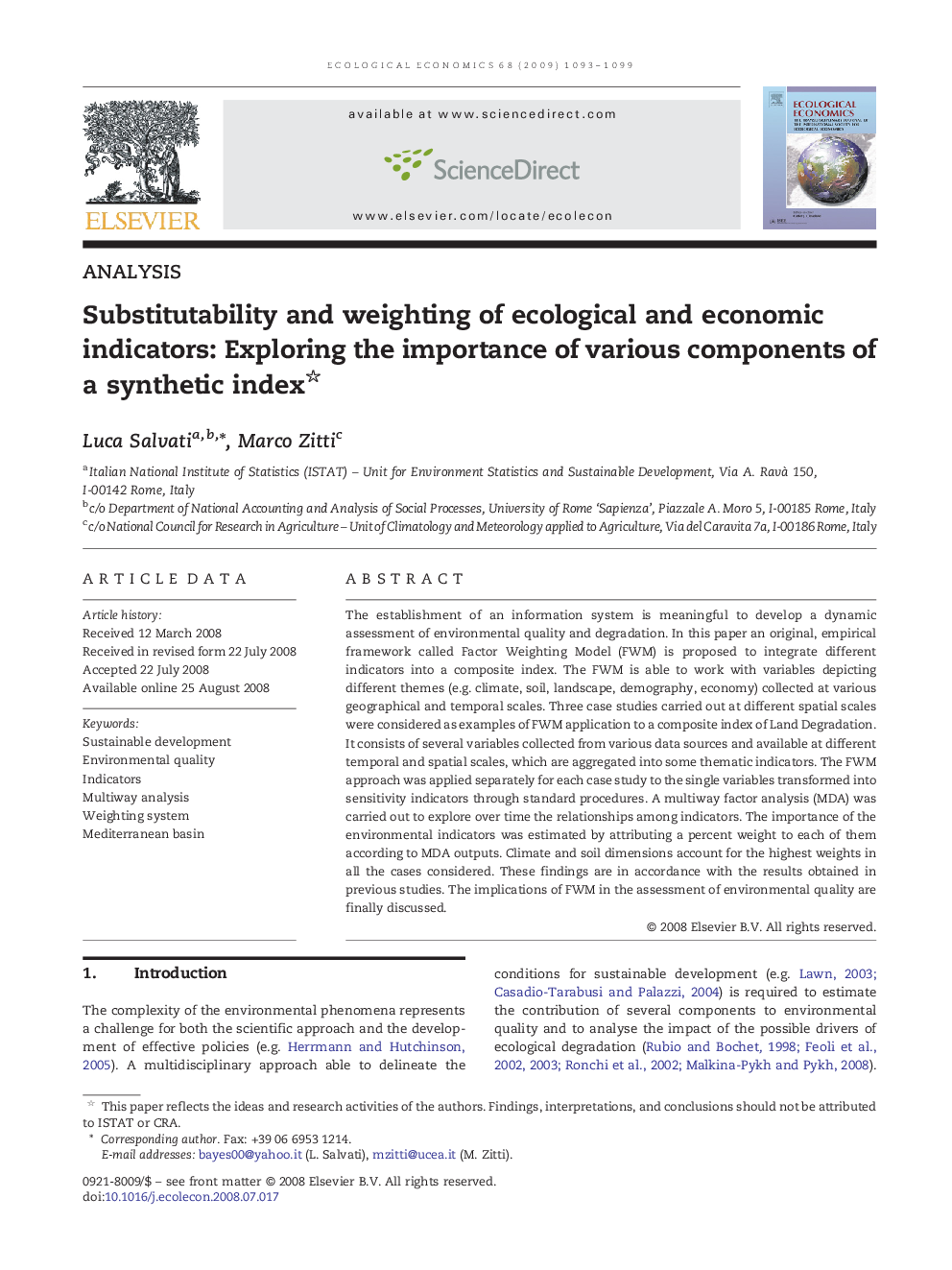| Article ID | Journal | Published Year | Pages | File Type |
|---|---|---|---|---|
| 5051376 | Ecological Economics | 2009 | 7 Pages |
The establishment of an information system is meaningful to develop a dynamic assessment of environmental quality and degradation. In this paper an original, empirical framework called Factor Weighting Model (FWM) is proposed to integrate different indicators into a composite index. The FWM is able to work with variables depicting different themes (e.g. climate, soil, landscape, demography, economy) collected at various geographical and temporal scales. Three case studies carried out at different spatial scales were considered as examples of FWM application to a composite index of Land Degradation. It consists of several variables collected from various data sources and available at different temporal and spatial scales, which are aggregated into some thematic indicators. The FWM approach was applied separately for each case study to the single variables transformed into sensitivity indicators through standard procedures. A multiway factor analysis (MDA) was carried out to explore over time the relationships among indicators. The importance of the environmental indicators was estimated by attributing a percent weight to each of them according to MDA outputs. Climate and soil dimensions account for the highest weights in all the cases considered. These findings are in accordance with the results obtained in previous studies. The implications of FWM in the assessment of environmental quality are finally discussed.
